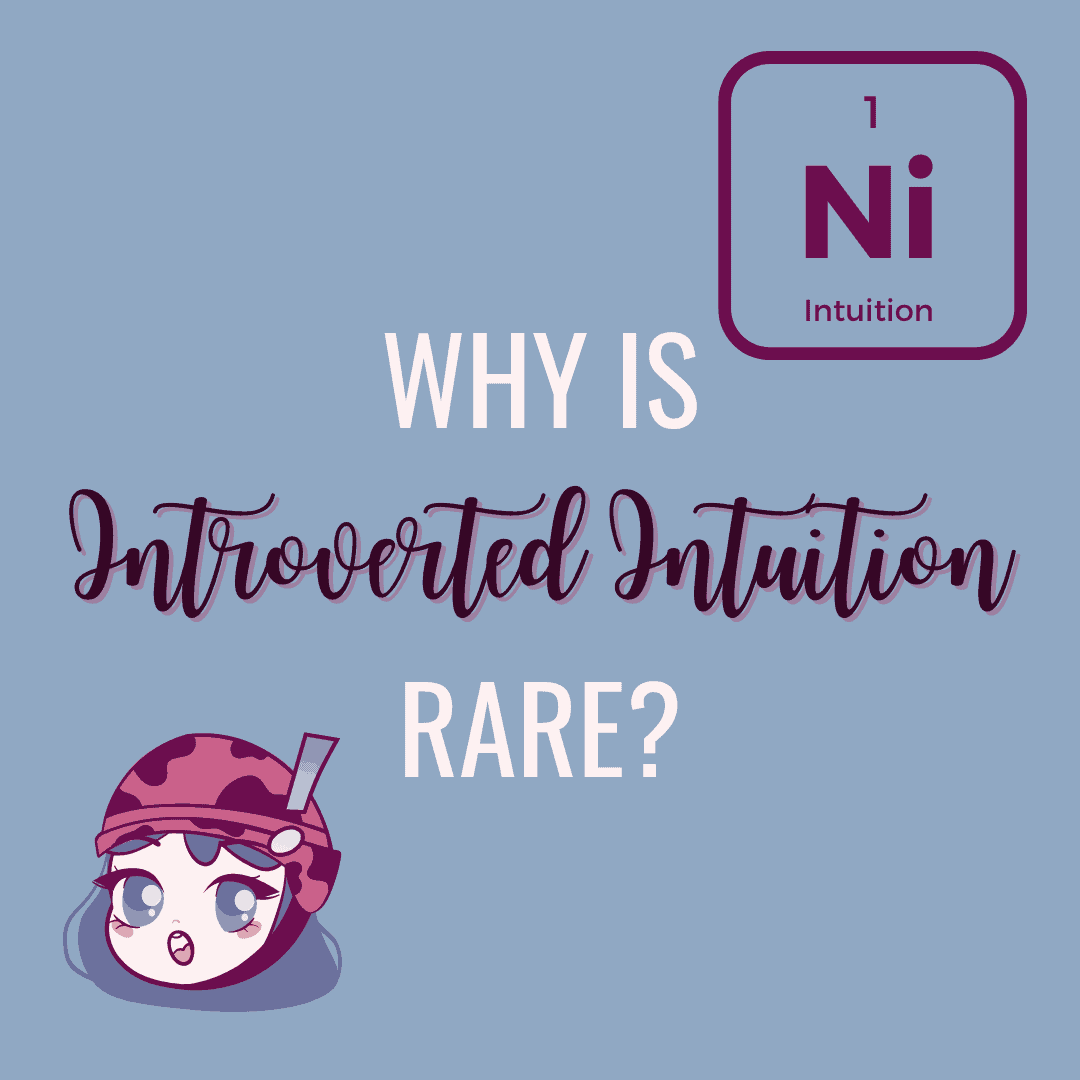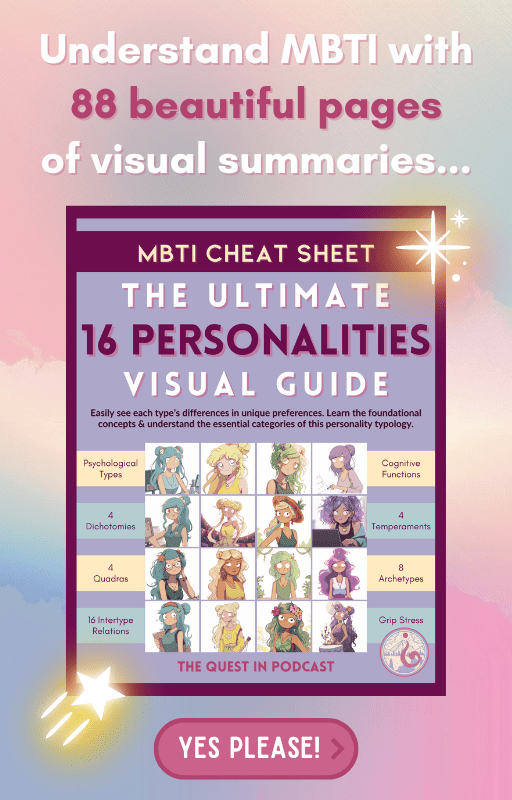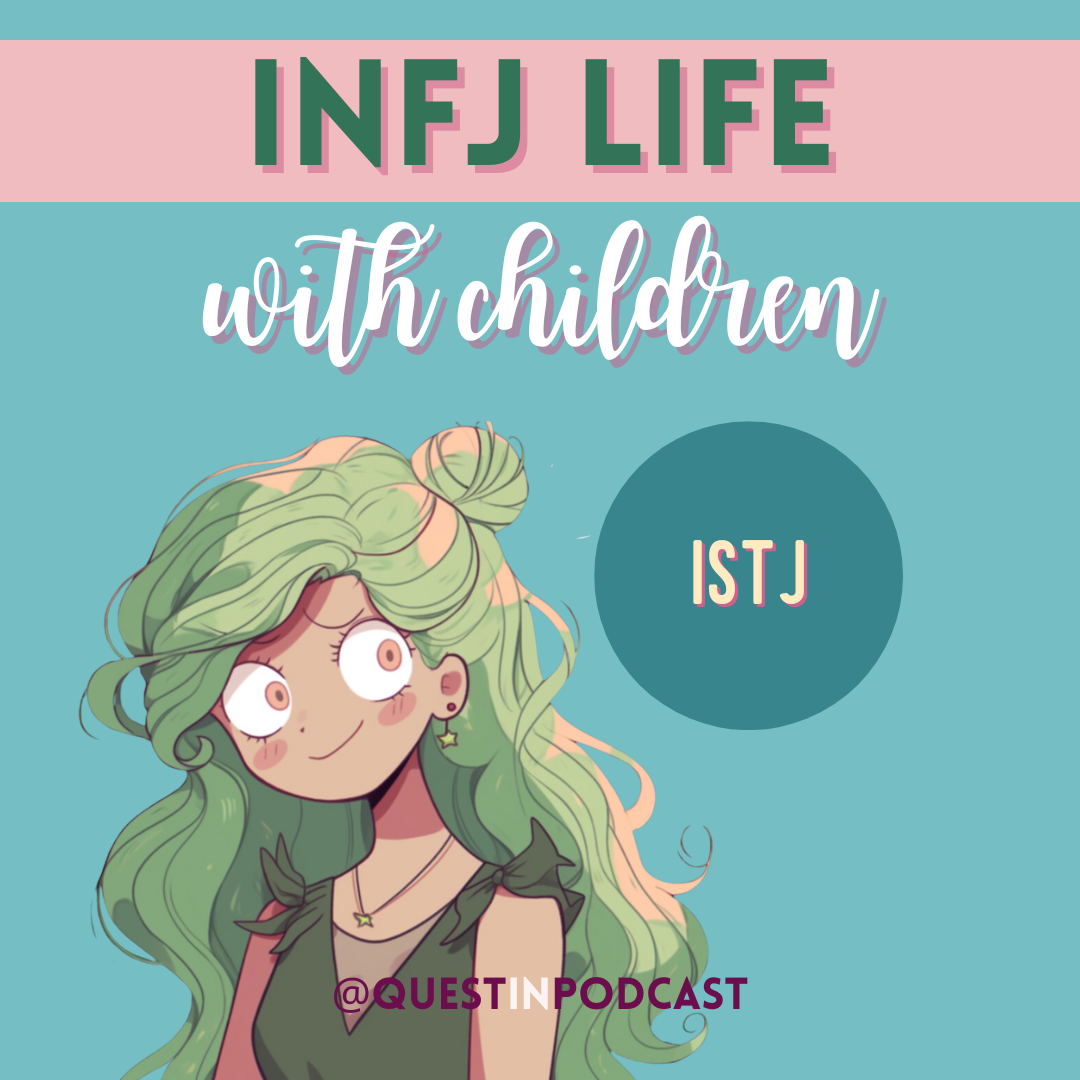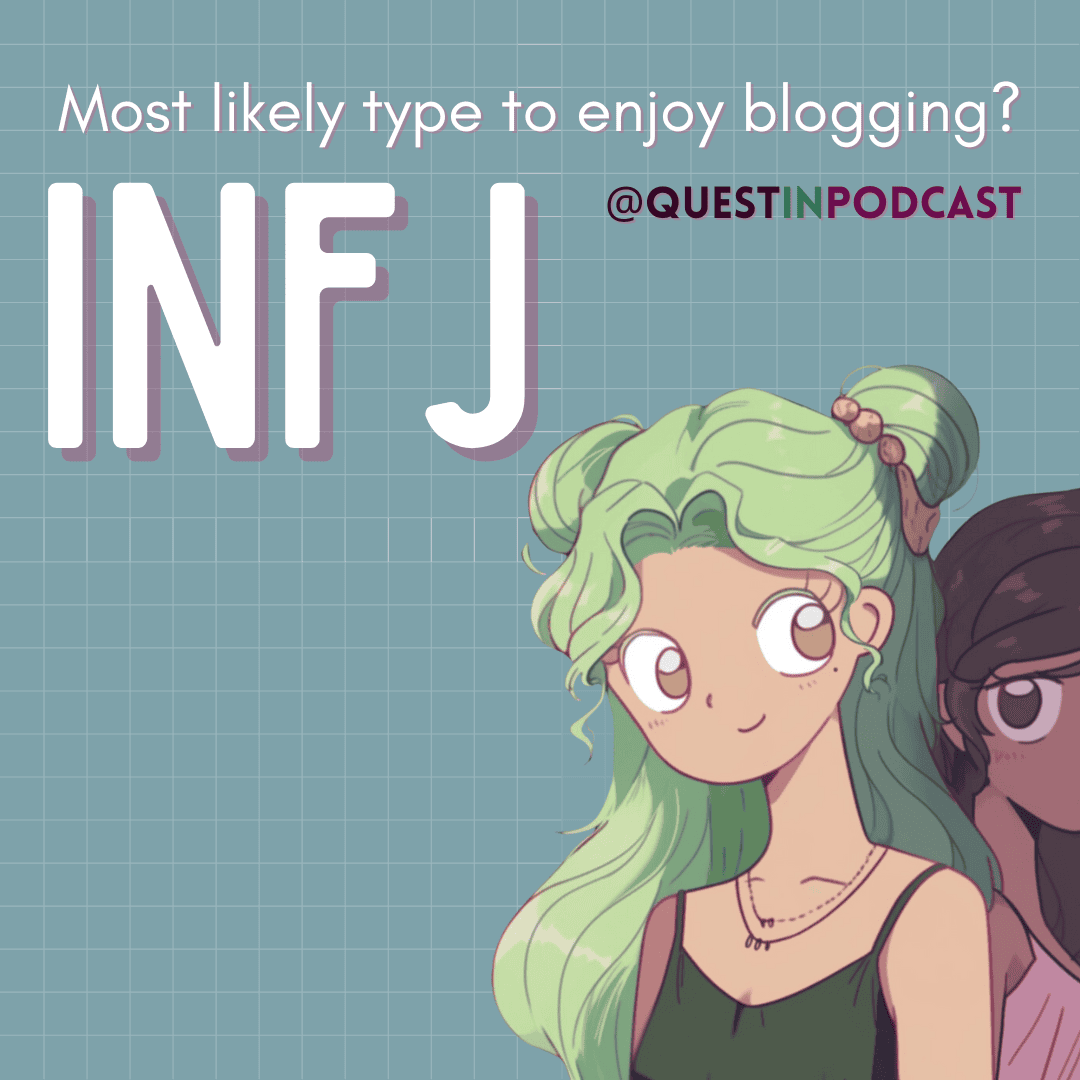
Why is Introverted Intuition RARE?
Wondering WHY is Introverted Intuition rare?
Are you curious why is introverted intuition rare and want to explore what makes this cognitive function require its scarcity in the population?
In this article, learn why exactly this needs to be the case in order for society to properly function.
What is Introverted Intuition (Ni)?
Introverted Intuition Explained
Introverted intuition is a perceiving function in the psychology typology framework developed by Carl Jung and popularized by Myers-Briggs. It is one of the 8 cognitive functions which categorize the 16 personalities of MBTI.

How introverted intuition works is comparable to a computer processor of sorts that is constantly collecting data in a person’s subconscious mind. Over time, unconscious images and gut feelings occur allowing the person to gain insights about the outside world. Cognitive processing occurs in the form of pattern recognition, enabling introverted intuition uses to make accurate predictions about things to come.

A Ni-user generally loves finding the hidden meaning or underlying meaning of things in everyday life. They have a vibrant inner world and a strong conscious awareness of time. Ni-users have a lot of fun problem-solving and can really tap into their introverted intuition when they are generating creative solutions and innovative ideas. They are big-picture individuals who prioritize personal growth and working towards their goals.
Introverted intuition is characterized as convergent thinking, in which the user likes to draw conclusions and unique insights from the information that they gather. Sometimes, Ni-users may have difficulty explaining their gut instincts and predictions of future outcomes. They often feel like “they just know.” Their unconscious mind will make the inner workings of their internal world have an innate creativity. These individuals have a seemingly magical ability to see circumstances from a very unique angle.

How common is Introverted Intuition? & Why Ni is Rare…
Only a small percentage of MBTI types use Introverted Intuition as a dominant cognitive function. One idea of why introverted intuition must be rare within a population is the theory that introverted-intuitives are people who desire to implement change in societies.

The natural strengths of introverted intuition include their desire to solve problems, high-level planning, and forceful execution. (Sometimes thanks to the Ni-Se axis which means that all Ni-users also have extroverted sensing.)
Introverted-intuitives use this perceiving function and their gut feelings to recognize how society can be improved and renovated. However, this poses a problem for the stability of society, populations, and cultures if many individuals wanted to implement such drastic changes.
The function of introverted intuition works through a strong visual element where Ni-users can clearly imagine in their mind’s eye future outcomes. They can easily create a vision with tangible images of potential possibilities. This makes introverted-intuitives naturally people who promote change, and everyday life in the outside world would not be sustainable if too many individuals were introverted-intuitive personality types.

What MBTI uses Introverted Intuition? (Introverted Intuition Personality Types)
Introverted Intuitives (Dominant Function)
Introverted-intuitive types have either a lead/dominant function or an auxiliary function of introverted intuition. The intuitive introverts that use this function are the INFJ Advocate personality type and the INTJ Mastermind personality type. INFJs and INTJs prefer to use introverted intuition as their primary cognitive function. These introverted-intuitives are two of the rarest personality types.

Extroverted Intuitives of Introverted Intuition (Auxiliary Function)
The introverted-intuitive extroverts that use this function are the ENFJ Mentor personality type and the ENTJ Commander personality type. ENFJs and ENTJs prefer to use introverted intuition as their supportive auxiliary cognitive function.
Who uses Introverted Intuition?
Estimated Percentages of Introverted-Intuitive Dominants
- INFJ (Introverted, Intuitive, Feeling, Judging): Approximately 1-3% of the population
- INTJ (Introverted, Intuitive, Thinking, Judging): Approximately 2-4% of the population
- ENFJ (Extraverted, Intuitive, Feeling, Judging): Approximately 2-5% of the population
- ENTJ (Extraverted, Intuitive, Thinking, Judging): Approximately 2-5% of the population
The total estimated percentage of introverted-intuitive types ranges between 7% to 17% of the general population.

Other Introverted-Intuitives (With Auxiliary or Inferior Functions of Ni)
There are 4 other MBTI types that also prefer introverted intuition as a conscious function as tertiary and inferior cognitive functions. The other introverted-intuitives are the ISTP Craftsman and ISFP Designer personality types. These introverted-intuitives have Ni as their tertiary cognitive function. The introverted-intuitive extroverts are the ESTP Explorer and ESFP Entertainer personality types who have Ni as their inferior (4th) function.
More Estimated Percentages of Other Introverted-Intuitives
- ISTP (Introverted, Sensing, Thinking, Perceiving): Approximately 4-6% of the population
- ISFP (Introverted, Sensing, Feeling, Perceiving): Approximately 5-9% of the population
- ESTP (Extraverted, Sensing, Thinking, Perceiving): Approximately 4-5% of the population
- ESFP (Extraverted, Sensing, Feeling, Perceiving): Approximately 4-9% of the population
The total estimated percentage of other introverted-intuitives ranges between 17% to 29% of the general population.
Total Estimated Percent of Types with Conscious Introverted Intuition (Ni)
We would add the estimated percentages to have a TOTAL range of 7 + 17 = 24% on the lower end and 17 + 29 = 46% of the higher end, which either way are considered a minority of the population.

Overall, only a small percentage of MBTI personality types use introverted intuition as a primary function, secondary function, or even lower conscious function.







